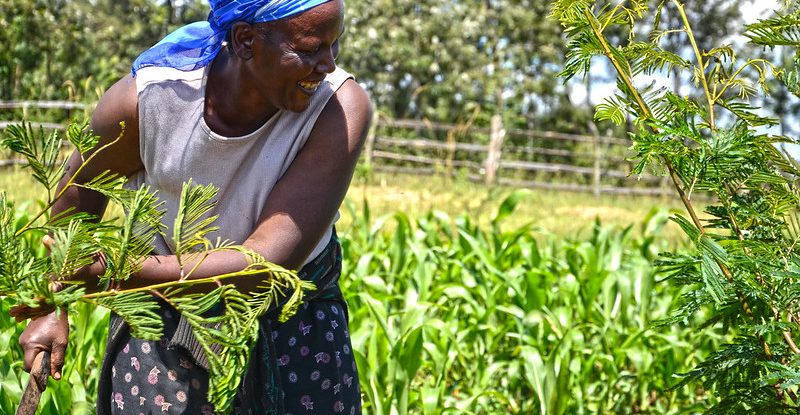
Agroecology can benefit food security by diversifying crop production, increasing soil fertility, upping productivity, boosting ecosystem services, and improving biodiversity. Its potential may be especially relevant in sub-Saharan African countries where most people still rely on agriculture, and where climate change is having significant impacts on lives and livelihoods. In this context, many people are already exploring new strategies – including agroecological ones – to build resilience. Yet there’s a dearth of data on the topic, and it’s difficult to measure the impact of such a context-specific and diversified approach.
To address this gap, researchers involved in the Metrics project of the Agroecological Transitions Program for Building Resilient and Inclusive Agricultural and Food Systems (TRANSITIONS) – an integrated project of the Agroecology TPP – are collaborating with Bangor University in Wales, UK to apply their new meta-framework on developing holistic systems assessments in a research setting. They are working with six MSc students who are planning to investigate the impact of agroecological practices on food security in five sub-Saharan African countries: Ghana, Kenya, Malawi, Nigeria, and Uganda.
In an online participatory workshop during the first week of April 2024, the Metrics team helped the students articulate their research aims and select appropriate metrics to ‘measure what matters’ in the context of their investigations.
“Agroecology and food security are general concepts, but to collect data about them requires some clear definitions and then choosing indicators that reflect those definitions,” said Richard Coe, Principal Scientist – Research Methods at CIFOR-ICRAF who is involved in the project. “The Metrics framework helps with this process. Many people have grappled with measuring food security and there is good experience to build on, but there is less on agroecology.”
In particular, the project offers a key opportunity to test and improve methods for causal inference – that is, working out whether A causes B (in this case, whether agroecology adoption causes improved food security). “If farmers who use more agroecology are more food secure, is that convincing evidence of the connection? It’s easy to think of reasons why that correlation may be misleading,” said Coe. “For example, perhaps the more wealthy farmers are more food secure, and they are also the ones who have the resources to use agroecology.”
Such inferences are further challenged by factors like having no baseline data, not being able to control agroecology adoption or assume that external conditions remain constant, and being restricted to a single visit to each field site. As such, “the Metrics team helped [the students] figure out a method based on the mechanisms or reasons that connect agroecology and food security,” said Coe.
A further challenge is that of working across contexts. The students would like to draw together results from the different situations they are studying, which requires a common method, yet both food security and agroecology are context-specific. “An agroecological practice that is very useful in dryland Kenya might not be appropriate in central Nigeria,” said Coe. “So, the students need to find a way of using the same approach in each country but adapt it to their local conditions.”
It’s challenging – yet critical – work. Whilst conventional intensification, with its accompanying negative social and environmental impacts, remains the status quo for addressing food security challenges, “people demand evidence that [agroecology] really can deliver,” said Coe.
“This piece of research will provide some of that evidence, connecting agroecology with what remains one of our most serious global challenges,” he said. “If it goes well, then the impact of the research is likely to be mainly methodological. Five case studies from five countries produce rather limited evidence – but if the approach used really does overcome those methods’ challenges, then it could provide a model for more extensive studies in the future.”
Acknowledgements
The TRANSITIONS programme is implemented by The Alliance of Bioversity and CIAT, CIFOR-ICRAF, IRRI, IWMI, The Transformative Partnership Platform on Agroecology, and the University of Vermont. It is generously funded by the European Union and managed by IFAD.
We want you to share Forests News content, which is licensed under Creative Commons Attribution-NonCommercial-ShareAlike 4.0 International (CC BY-NC-SA 4.0). This means you are free to redistribute our material for non-commercial purposes. All we ask is that you give Forests News appropriate credit and link to the original Forests News content, indicate if changes were made, and distribute your contributions under the same Creative Commons license. You must notify Forests News if you repost, reprint or reuse our materials by contacting forestsnews@cifor-icraf.org.